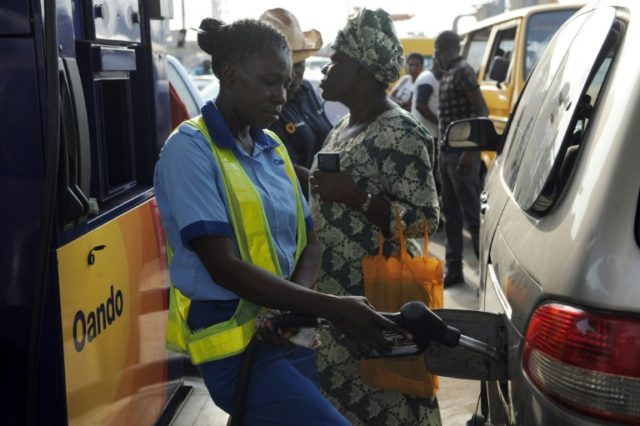Abuja (AFP) – Nigeria’s government on Wednesday warned against “illegal strike action” after some union members vowed to press ahead with a national strike over petrol price rises despite a court injunction.
A disgruntled faction of the Nigeria Labour Congress (NLC) said it would ignore the order and walk out to force the government to reinstate prices at 86.50 naira ($0.43, 0.38 euros) per litre.
Prices were raised by 67 percent last week to 145 naira per litre because of a lack of foreign exchange for fuel importers to pay for supplies, which has caused pumps to run dry.
Talks broke up between the NLC, the Trade Union Congress (TUC) and the government late on Tuesday, with most delegates agreeing to back the rises, pending further discussions.
But a group of disgruntled NLC members called the talks a “dead-end” and said the strike would hold.
There were some reports of disruption on Wednesday but businesses, including banks and markets, largely appeared to be open as usual.
– Attendance registers –
Federal government secretary Babachir David Lawal said all workers should “respect the laws of the land and… desist from participating in an illegal strike”.
Strikers would not be paid and attendance registers have been opened at all government offices, he said in a statement.
Lawal said Nigeria’s security services had been ordered to “ensure unimpeded access to offices, work places and markets”.
“Acts of intimidation, harassment, including barricading of gates, locking up of offices, blocking of roads and preventing workers from carrying out their lawful duties will be met with appropriate response by the law enforcement agencies.”
A judge at the National Industrial Court in Abuja on Tuesday issued a temporary injunction against strike action after an application by justice minister Abubakar Malami.
Malami submitted in court papers that a strike would cost the country “billions of naira” and cause “untold hardship and unimaginable security problems/challenges”.
– Rising prices –
The global slump in oil prices since mid-2014 has hit Nigeria’s economy hard, with the government dependent on crude export sales for 70 percent of its revenue.
The situation has weakened the naira currency, caused a shortage of foreign currency that fuel importers require to pay for supplies, and driven up the cost of living.
In April, inflation was 13.7 percent, according to the National Bureau of Statistics.
Renewed militant attacks on oil pipelines and facilities in southern Nigeria have led to a cut in production to 1.4 million barrels per day, well below budget estimates of 2.2 million bpd.
Nigeria consumes 45 million litres of petrol per day but a lack of domestic refining capacity means crude has to be exported and refined petroleum products imported.
The government has kept prices low at the pump by paying the difference in market price to suppliers.
But that subsidy policy has been seen as unsustainable because of the cash crunch and corruption in the system.
– ‘No other option’ –
Vice-President Yemi Osinbajo said on Tuesday the government had “no choice” but to raise petrol prices, adding: “What can we do if we don’t have foreign currency, we have to import fuel”.
Joe Ajaero, from the NLC faction that decided not to strike, said a committee had been set up to “iron out” outstanding issues with the government related to the hardships faced by ordinary people.
“We have asked the government to cushion the effects of the price increase on the people as well as make petrol readily available since people were already buying above the 145 naira cap,” he said.
“Government has to increase the minimum wage to 90,000 naira because of the multiplier effects of the petrol price hike on foodstuffs, goods and services.
“If at the end of two weeks these issues are not resolved we may have to review our position and begin to sensitise and mobilise the people for a showdown,” he told AFP.

COMMENTS
Please let us know if you're having issues with commenting.